Mystery Of The Seven Sages In Ancient Myths And Legends
Ellen Lloyd - AncientPages.com - In ancient myths and legends, we often encounter the mention of seven sages. These extraordinarily wise men are present in the myths and legends of Egypt, Babylon, Sumer, China, ancient Greece, and India. Who were these people, and why were they so important to our ancestors?
The Apkallu - The Demi-Gods Who Were The Seven Sages
In Babylonian myths and legends, they are referred to as Apkallu. These beings are described as demi-gods created by the god Enki. Their duty was to establish a culture and give civilization to mankind. They served as priests of Enki and as advisors or sages to the earliest kings of Sumer before the flood.
This is a preview of our premium article available only to members of Ancient Pages.
Become a member to read more - Click here
If you are already a member and have logged in to your account, you can access the article here
See also:
Secrets Of Hermes Trismegistus Who Brought Divine Wisdom To Mankind
Adapa – Why Did The Wise Apkallu Refuse The Gift Of Immortality?
More From Ancient Pages Library Of Ancient And Unexplained Mysteries
More From Ancient Pages
-
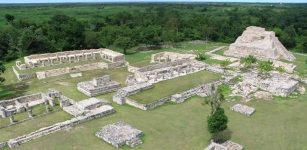 Mayapan: How The Last Big Mayan City Met Its End
Featured Stories | Jul 26, 2017
Mayapan: How The Last Big Mayan City Met Its End
Featured Stories | Jul 26, 2017 -
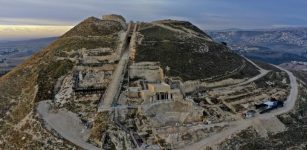 Never-Before-Seen Structures Of King Herod’s Magnificent Palace Herodium Unveiled
Archaeology | Dec 11, 2020
Never-Before-Seen Structures Of King Herod’s Magnificent Palace Herodium Unveiled
Archaeology | Dec 11, 2020 -
 On This Day In History: ‘Lady With The Lamp’ – Florence Nightingale Was Born – On May 12, 1820
News | May 12, 2016
On This Day In History: ‘Lady With The Lamp’ – Florence Nightingale Was Born – On May 12, 1820
News | May 12, 2016 -
 Oil Lamps, Spearheads And Skulls: Was The Te’omim Cave Used By Practitioners Of Necromancy?
Archaeology | Jul 15, 2023
Oil Lamps, Spearheads And Skulls: Was The Te’omim Cave Used By Practitioners Of Necromancy?
Archaeology | Jul 15, 2023 -
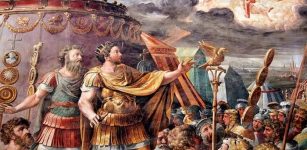 How The Strange Dream Of Roman Emperor Constantine Changed History
Ancient History Facts | Sep 29, 2017
How The Strange Dream Of Roman Emperor Constantine Changed History
Ancient History Facts | Sep 29, 2017 -
 Still Intact 460-Year-Old Bow Found Underwater In Alaska Baffles Scientists – Where Did It Come From?
Archaeology | Mar 17, 2022
Still Intact 460-Year-Old Bow Found Underwater In Alaska Baffles Scientists – Where Did It Come From?
Archaeology | Mar 17, 2022 -
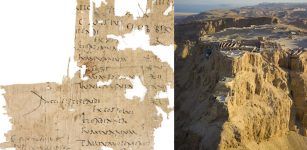 Rare Ancient Paycheck Of A Roman Legionary Soldier Found At Masada
Archaeology | Feb 16, 2023
Rare Ancient Paycheck Of A Roman Legionary Soldier Found At Masada
Archaeology | Feb 16, 2023 -
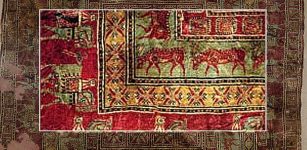 Pazyryk Carpet Found In Scythian Tomb Considered The Oldest Carpet In The World
Artifacts | Oct 5, 2016
Pazyryk Carpet Found In Scythian Tomb Considered The Oldest Carpet In The World
Artifacts | Oct 5, 2016 -
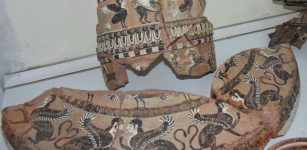 One Of A Kind 2,500-Year-Old Ritual Wash Basin Painted With Mythological Figures Discovered In The Ancient City Of Klazomenai
Archaeology | Oct 1, 2022
One Of A Kind 2,500-Year-Old Ritual Wash Basin Painted With Mythological Figures Discovered In The Ancient City Of Klazomenai
Archaeology | Oct 1, 2022 -
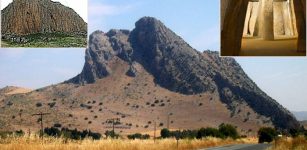 Mysterious Menga Dolmen: A New Very Old Monument Discovered
Archaeology | Sep 21, 2020
Mysterious Menga Dolmen: A New Very Old Monument Discovered
Archaeology | Sep 21, 2020 -
 Sirrush – Powerful “Glamorous Snake” Guarded Marduk But Did This Hybrid Really Exist?
Myths & Legends | Apr 29, 2022
Sirrush – Powerful “Glamorous Snake” Guarded Marduk But Did This Hybrid Really Exist?
Myths & Legends | Apr 29, 2022 -
 Neanderthal-Denisovan Ancestors Interbred With ‘Superarchaic’ Population 700,000 Years Ago
Archaeology | Feb 24, 2020
Neanderthal-Denisovan Ancestors Interbred With ‘Superarchaic’ Population 700,000 Years Ago
Archaeology | Feb 24, 2020 -
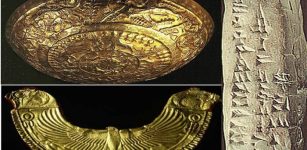 Forgotten Ancient Ugarit: One Of The Flourishing And Oldest Cities Of Canaan
Featured Stories | Jun 15, 2023
Forgotten Ancient Ugarit: One Of The Flourishing And Oldest Cities Of Canaan
Featured Stories | Jun 15, 2023 -
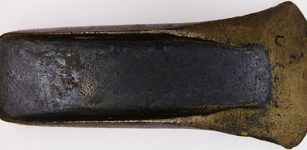 Truth Behind Mysterious Ancient Metal Depositions Revealed By Scientists
Archaeology | Dec 8, 2021
Truth Behind Mysterious Ancient Metal Depositions Revealed By Scientists
Archaeology | Dec 8, 2021 -
 Being Left-Handed Was A Sign Of Evil Until Only Recently
Ancient History Facts | Jun 29, 2018
Being Left-Handed Was A Sign Of Evil Until Only Recently
Ancient History Facts | Jun 29, 2018 -
 Cueva de Ardales – Rock Art Cave In Spain Was Used By Ancient Humans For More Than 50,000 Years
Archaeology | Jun 1, 2022
Cueva de Ardales – Rock Art Cave In Spain Was Used By Ancient Humans For More Than 50,000 Years
Archaeology | Jun 1, 2022 -
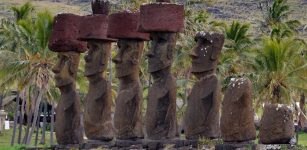 Timing Of Easter Island’s Societal Collapse – Revisited
Archaeology | Feb 7, 2020
Timing Of Easter Island’s Societal Collapse – Revisited
Archaeology | Feb 7, 2020 -
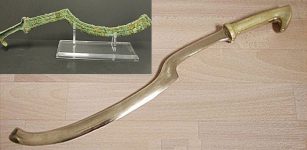 Khopesh Sword – Symbolic Weapon Of The Pharaohs And Emblem OF Egyptian Deities
Artifacts | May 27, 2021
Khopesh Sword – Symbolic Weapon Of The Pharaohs And Emblem OF Egyptian Deities
Artifacts | May 27, 2021 -
 Ancient City Of Adab That Flourished In North Sumer
Civilizations | Jul 19, 2017
Ancient City Of Adab That Flourished In North Sumer
Civilizations | Jul 19, 2017 -
 Unusual Parcel With 500-Year-Old Horn Container Discovered In South Africa Sheds Light On Pre-Colonial Khoisan Medicines
Featured Stories | Feb 15, 2023
Unusual Parcel With 500-Year-Old Horn Container Discovered In South Africa Sheds Light On Pre-Colonial Khoisan Medicines
Featured Stories | Feb 15, 2023



